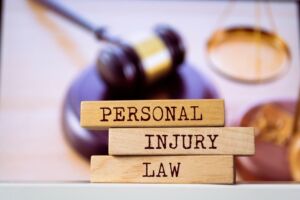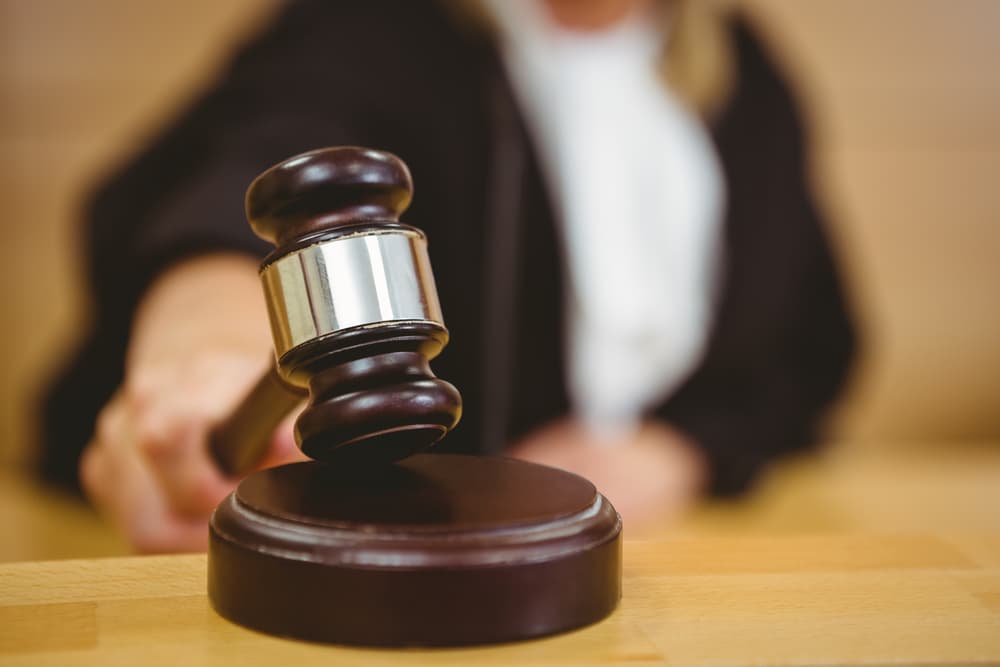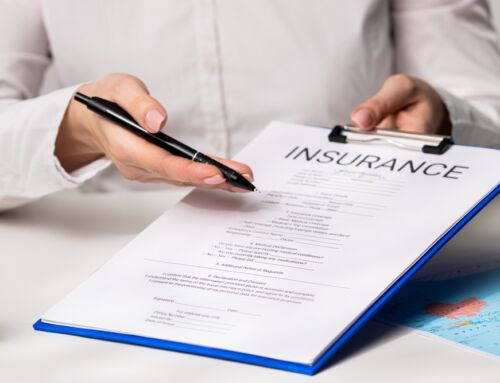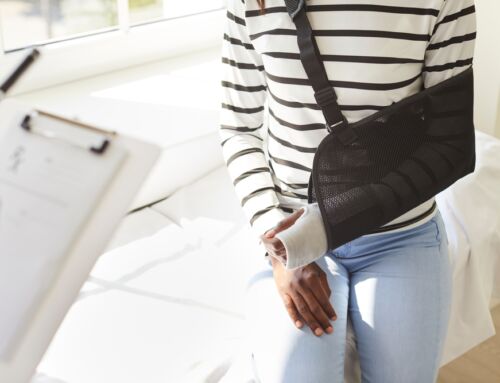Tens of millions of Americans seek emergency care for injuries annually, many from preventable accidents. Despite these numbers, many injured individuals hesitate to seek legal help. They may not recognize a valid claim, prefer to manage it themselves, or believe a lawyer is only for severe cases.
You don’t need to have broken bones, a totaled vehicle, or a six-figure hospital bill to benefit from legal representation. In fact, by the time you realize things are getting complicated, it may be tougher to undo critical missteps. So if you’re wondering when to hire a personal injury lawyer, the best answer is often: sooner than you think.
Key Takeaways for When to Get a Lawyer After an Accident
- Legal help isn’t just for serious injuries. Minor injuries can turn into major problems over time.
- Insurance companies begin limiting your options almost immediately after an accident.
- Hiring a lawyer early can preserve your rights, strengthen your claim, and reduce stress.
- A free consultation can help you understand your legal options before you accept a lowball settlement offer.
Why You Should Hire a Personal Injury Lawyer as Soon as Possible
Most injury victims don’t feel the full impact of their accident right away. Medical symptoms often unfold gradually, and insurance adjusters don’t show their hand until you’re already vulnerable. That’s by design. From the moment a crash report is filed or an incident is documented, insurers begin protecting their own interests, not yours.
Hiring a trusted attorney early does more than help you file paperwork. An attorney protects your rights from the very start. Early legal representation allows your lawyer to:
- Shield you from aggressive insurance tactics
- Coordinate your medical documentation and treatment records
- Investigate the incident thoroughly before evidence is lost
- Advise you on what to say—and what not to say—to avoid hurting your case
The longer you wait, the more power you give the insurance company. They begin setting the narrative and building a case that may downplay your injuries or shift blame onto you. Legal support early on helps preserve the facts and avoid costly mistakes before they happen.
The safest time to contact a lawyer is as soon as possible after receiving medical care. There’s no downside to reaching out early, especially when most consultations are free.
Common Situations Where You Should Hire a Personal Injury Lawyer
Many people assume they only need a lawyer when they’re facing a lawsuit or a large hospital bill. But the real signs you should hire a lawyer show up much earlier than that.
Here are a few key scenarios where speaking with an attorney can make a real difference:
- You’re unsure who was at fault: If liability isn’t clear or multiple parties are involved, your claim could be at risk without strong legal representation.
- The insurance company denied or delayed your claim: Tactics like denying responsibility or stalling payment are common and often fixable with legal help.
- You suffered injuries that interfere with work or daily life: Lost wages, chronic pain, or long-term treatment can justify compensation even if your initial bills were modest.
- You’ve been offered a quick settlement: Fast cash may tempt you when hospital bills pile up and your injuries keep you out of work, but accepting too early can leave you without the funds for future care. Initial offers from insurance companies are almost always far below what you need.
Even if you’re unsure your case qualifies, a free consultation can help clarify your options and protect you from being taken advantage of when you’re at your most vulnerable.
What Can a Personal Injury Lawyer Do for You?
A lawyer’s role in a personal injury case goes far beyond courtroom arguments. Most claims settle before trial, but that doesn’t make them simple. Your attorney provides structure, strategy, and protection at every stage of the process.
Legal strategy and case evaluation
Your lawyer reviews the facts, identifies potential claims, and builds a custom strategy. This includes gathering medical records, interviewing witnesses, and calculating damages accurately.
Insurance negotiation and communication
You won’t have to handle phone calls, paperwork, or pressure from insurance adjusters. Your lawyer negotiates on your behalf, presents your damages clearly, and pushes back on bad-faith tactics.
Medical and financial coordination
A good attorney helps coordinate your treatment, manage bills, and delay collections until your case resolves. They may also help negotiate reductions in medical liens so you keep more of your settlement.
Better outcomes and no upfront cost
Studies show that people who hire a personal injury lawyer typically recover significantly more compensation, even after legal fees. And since most attorneys work on contingency, you pay nothing unless they win your case.
You’re not paying just for representation. You’re paying for peace of mind, strategic guidance, and a stronger shot at a full recovery.
Key Indiana Laws That May Affect Your Case
 Every state has its own rules and deadlines for filing personal injury claims. Here are two that matter most in Indiana:
Every state has its own rules and deadlines for filing personal injury claims. Here are two that matter most in Indiana:
- Statute of Limitations: Under Indiana Code § 34-11-2-4, you typically have two years from the date of injury to file a lawsuit. Miss this deadline and your case may be dismissed, no matter how valid it is.
- Comparative Fault Rule: Indiana follows a modified comparative fault rule (Indiana Code § 34-51-2-6). If you’re more than 50% at fault, you can’t recover damages. If you’re less than 51% responsible, your compensation is reduced by your share of fault.
Insurance companies often use these rules to reduce their own liability and minimize payouts. An experienced lawyer will push back against blame-shifting and ensure your case meets the critical legal deadlines.
What If the Accident Was Minor?
Some of the most complicated injury claims start off small. A sore neck from a low-speed crash could become a herniated disc. A simple fall could lead to chronic pain or mobility issues. What seemed like a concussion at first may have symptoms that last for months or longer. By the time you realize you need help, you may have already signed away your rights.
Even if your injury seems minor, consider whether:
- You’re still experiencing pain or symptoms
- You’ve had to miss work or daily activities
- Your quality of life has been diminished
- Medical costs are rising over time
If so, it’s worth speaking with an attorney. A brief conversation could save you from settling too soon or missing out on compensation you’ll later need.
What If I Already Talked to the Insurance Company?
It’s common to speak with insurance adjusters before realizing you may need legal support. Unfortunately, these early conversations often shape the insurer’s view of your claim. Something as simple as saying “I’m feeling okay” or downplaying your symptoms can be used to argue your injuries aren’t serious.
If you’ve already given a statement or accepted partial payment, don’t panic. A personal injury lawyer can still intervene to evaluate what’s happened so far, advise you on next steps, and potentially correct the course of your claim. But time matters—delays could limit your options moving forward.
You may not undo what you said, but you can make stronger decisions from this point on. Never assume all is lost. Seek legal advice before moving further.
What to Do Before Hiring a Personal Injury Lawyer
Before you hire anyone, there are a few steps you can take to prepare, but only if you’re able. You don’t need to have everything figured out. A good lawyer understands the pain, exhaustion, and pressure you feel, and they’ll meet you where you are.
Here are a few things that can help, if you’re in a position to do them:
- Gather any documentation related to the incident, including photos, bills, and reports
- Write down what happened in your own words while it’s still fresh
- Keep records of all your medical appointments and missed work
- Don’t post about the incident on social media—it can be used against you
- Make a list of your questions or concerns for the attorney
If taking any of these steps is beyond your limits, that’s okay. Your lawyer can help collect documents, organize timelines, and guide you through the process. The most important thing is reaching out when you’re ready. They can take it from there and lighten the load.
FAQs for When to Hire a Personal Injury Lawyer
What if I already accepted a small settlement?
You may still have options, but if you signed a release of liability, the case may have closed. It’s worth having a lawyer review what you signed to see if they can do anything.
Is it worth hiring a lawyer for a minor injury?
Yes—especially if the injury interferes with your life, requires follow-up care, or causes financial strain. What seems minor now may turn into something more serious later.
Why should I not handle my own injury claim without a lawyer?
You’ll face trained insurance professionals whose job is to pay as little as possible. A lawyer balances the scales and uses their leverage to help you recover far more than you’d get on your own.
Will I have to go to court if I hire a personal injury lawyer?
Not necessarily. Most personal injury claims are resolved through settlements without ever going to trial. If your case does go to court, your lawyer will handle the preparation and represent you every step of the way.
How much does a personal injury lawyer cost in Indiana?
Most work on a contingency fee basis. That means you pay nothing up front and only pay a percentage of your recovery if your case is successful. Be sure to confirm the fee agreement before signing anything.
What if the at-fault driver doesn’t have insurance?
If the driver who caused your injury is uninsured, you may still have options. You can file a claim through your own uninsured motorist coverage if you have it, or explore whether other parties may be partially liable. A personal injury lawyer can review your policy and identify all possible paths to compensation.
Can a lawyer help if my injury happened on someone else’s property?
Yes. If you were hurt on another person’s property, such as in a store, rental home, or parking lot, you may have a valid premises liability claim. A lawyer can investigate whether the property owner failed to fix a hazard or warn you about unsafe conditions, which may make them legally responsible for your injuries.
Why do I need a lawyer if the accident involved a company or government vehicle?
Accidents involving commercial trucks or government vehicles follow different rules and timelines. If you’re injured by a delivery driver, city bus, or utility vehicle, for example, you may have a much shorter deadline to file a claim. A lawyer can act quickly to preserve evidence and make sure your claim meets the necessary legal requirements.
How does fault affect my personal injury claim in Indiana?
Indiana follows a modified comparative fault rule. If you are 50% or less at fault for an accident, you can still recover damages, but your compensation is reduced by your percentage of fault. If you are more than 50% at fault, you cannot recover any damages.
An experienced lawyer helps protect you from unfair blame-shifting by insurance companies.
Take Control of Your Personal Injury Case Today

William W. Hurst, Personal Injury Lawyer
The earlier you hire a personal injury lawyer, the more control you retain over the outcome of your case.
Whether your injury feels significant enough or not, you’re not expected to pay for someone else’s careless actions on your own or to make the right legal decisions without help. Consulting a personal injury lawyer soon after your accident helps you harness the power of the civil justice system to obtain the compensation you need.
At Hurst Limontes LLC, we’ve spent decades fighting for injured people across Indiana. From car accidents and falls to catastrophic injuries and wrongful death, our team brings over 100 years of combined experience to every case, and we have a long history of results to show for it. You pay only if we obtain a settlement or verdict on your behalf, and consultations are always free.
If you’re ready to stop second-guessing and get clarity on your options, contact us online or call us at (317) 636-0808 today. Let us help you take the next step with confidence.





